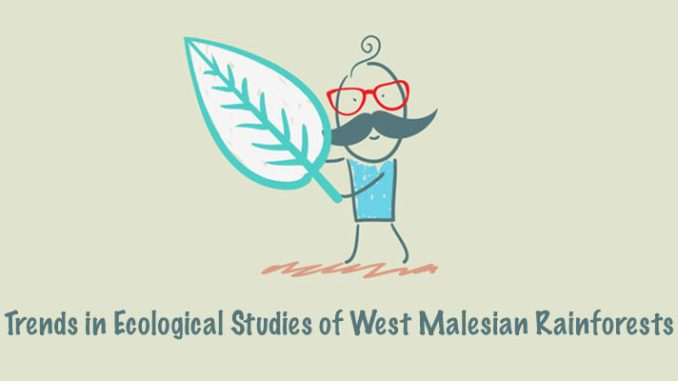
Tropical rainforests in West Malesia (the western half of the Malay Archipelago) are at the center of biodiversity of Southeast Asian terrestrial ecosystems. Researchers who pay attention to issues of species richness—origin, mechanisms of coexistence, effects on ecological functions—have favored West Malesian forests as research sites because they can be accessed more easily than those in the Peruvian Amazon. This paper illustrates how trends in tropical rainforest research relate to the changing ecological frameworks of the last fifty years. These include relationships between environment and type of vegetation and its succession process; mechanisms for maintaining species composition; ecosystem ecology focusing on the flow of materials and energy; population ecology exploring population dynamics; and evolutionary ecology considering why living things have certain sets of behavior in historical terms. Recently, these frameworks have been integrated into the study of the creation and maintenance of biodiversity and the relationship between biodiversity and ecosystem functioning.
Ecology, as one of the disciplines of biology, has progressed by proposing and testing theories in those frameworks. At the same time ecology is a field science. It must contribute to understanding (and if possible, improving) the areas where fieldwork is carried out. For example, recent studies showing how the environment is maintained can be one contribution. In general, the questions that ecologists have explored for several decades are helpful in understanding these areas, improving welfare, and enriching culture by reconstructing the deep relationship between humans and other living things.
Momose Kuniyasu
Read the full unabridged article HERE
Kyoto Review of Southeast Asia. Issue 2 (October 2002). Disaster and Rehabilitation

